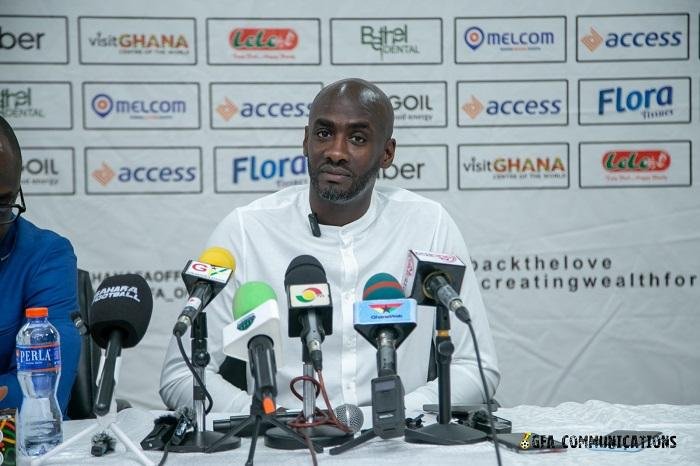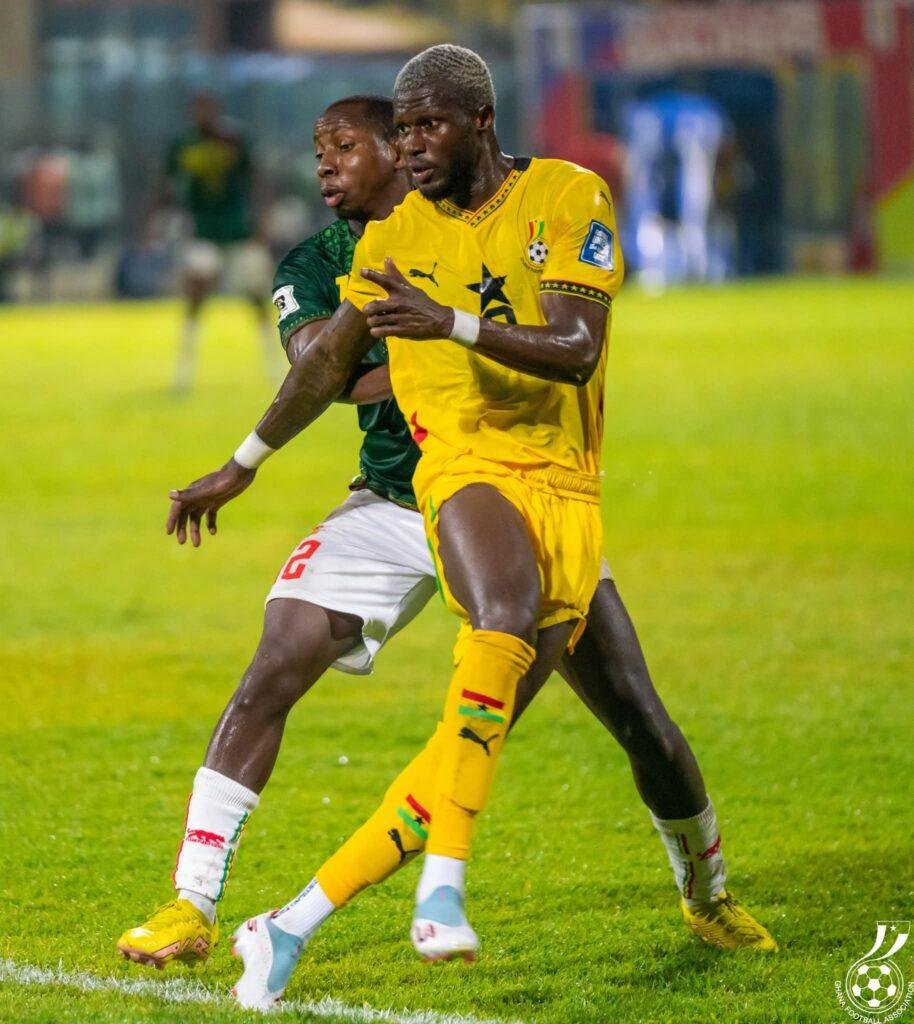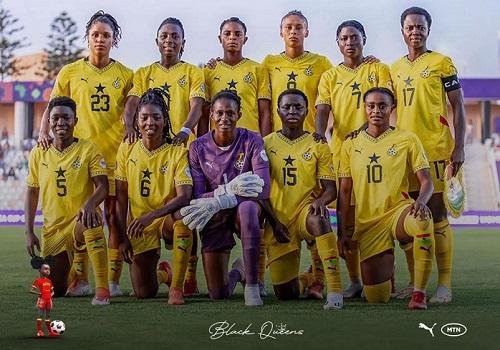Sports
Worst ‘clasico’ in decades

Accra Hearts of Oak and Kumasi Asante Kotoko are the biggest traditional clubs in Ghana, without doubt.
There is no argument about their status as far as Ghana football is concerned. Despite their struggles in recent times, the weight of these clubs weigh heavily on the others who seem to be doing well.
In Africa, they seem to have experienced a serious slump in terms of performance on the field but in the history books, they remain strong forces.
In the glory days of Hearts and Kotoko, they were used to gauge the success of football in Ghana.
It is the reason why even in their weakest moment, games against them by the smaller clubs are considered huge tasks.
Just like it is in other countries, they provide local soccer fans with Ghana’s version of the ‘El Clasico’ which usually pitches the top two clubs of every country.
Ghana’s version of this great meeting was honoured on Sunday at the Accra Sports Stadium and the least said about the performance from the two teams, the better.
It was the poorest in recent times as fans had very little to enjoy from the drab game. It should explain the levels to which Ghana football has dropped, especially the local league.
Under normal circumstances, a clash between Hearts of Oak and Asante Kotoko would create a holiday atmosphere; with several roads around the stadium and ministries area closed to traffic.
Security is heavily felt with fans preferring to leave their vehicles at home and go with public transport to avoid the traffic congestion around the venue – both Accra and Kumasi.
That exciting and anxious atmosphere appear to have lost. Now fans have become apathetic to Ghana’s Clasico.
The scene at the Accra Sports Stadium last Sunday was nothing to write home about; it was sad. It was sad to an extent that a game that required fans to be around the stadium by 12noon and go in by 2pm is now played in a virtually empty stadium.
The current Ghana ‘Clasicos’ lack the players whose names alone were enough to quench the thirst of supporters. With few media houses and the absence of social media platforms to promote such games, the mere mention or knowledge of players to appear for both sides were enough tool to hype the game.
Hearts of Oak fans would flood the stadium in their numbers, confident of seeing players like Ablade Kumah, Shamo Quaye, Owusu Afriyie, Offei Ansah, Ezekiel Alamu, Nanabenyin Crenstil, Emmanuel Armah, Joe Addo, Thomas Hammond, Thomas Quaye and others.
And at the Accra International Conference Centre (AICC) end of the pitch, one would see fans of Asante Kotoko cladded in red chanting names like Mohammed Odoom, Anthony Osei Kwadwo, Kwesi Appiah, Frank Amankwa, Emmanluel Appiah, Frimpong Manso, Stanley Abora, Sarfo Gyamfi, Joe Debrah, Thomas Boakye, Olli Rahmen, Isaac Boakye and others.
Any team that faced Hearts of Oak or Kotoko with these players in their line up knows it would not end well with them.
So anytime they meet each other, everyone was aware it would rain fire and brimstone.
But what is seen nowadays is quite unfortunate. Player quality has become a major headache for fans. One even wonders how some were recruited into the teams.
Interestingly, police numbers at the stadium last Sunday was more than the fans that turned out to watch the game, a situation that greatly affected the game’s temperament.
Clearly, it shows the level to which Ghana football has sank; calling for urgent measures to rescue it.
The game is lacking the players whose performances would keep fans cheering for over one hour and 30 minutes. Where these players have gone to remains a mystery. We have blamed player exodus on the poor quality of the league but little has been done to halt the trend because of the love for the mighty dollar.
Secondly, the mode of recruitment or scouting have become another problem as very good and talented players are ignored for players with managers that can pay for the platforms to perform to earn a deal abroad.
The problems are numerous with solutions in sight very few but if what fans watched as Ghana’s clasico is anything to go by, then stakeholders must rise up to save Ghana football.
By Andrew Nortey
Sports
‘Black Stars not there yet’

After seeing Mali undone by Alexander Djiku’s second half strike to give Ghana a 1-0 victory over Mali on Monday in a 2026 FIFA World Cup qualifier in Accra, Otto Addo gave his thoughts in the post-match press conference.
Below are excerpts.
On the game against Mali
You could see that we have a young squad and players who haven’t been playing often for the national team so far; that made them nervous. I think we got a good game.
We increased the pressure early in the second half, and managed to score out of a set piece. And then it was pure fight afterwards, especially the period after the goal.

On decision-making in the final third
I think if you have played before, you know that sometimes there’s a little bounce from the ball or the position is close and you think too much, I told them actually, but as a footballer, it’s normal that you try to look for a perfect solution.
Semenyo’s performance
He did really well, you know, it’s difficult to compare games from the Premier League with games in Africa and Ghana. It’s very, very difficult and then all games have their own nature and surely you can say that he stands more out in the Premier League, but for me today he was excellent, he fought until he couldn’t run anymore.
On Gideon Mensah
Well, I think sometimes he’s a little bit too confident and we had, especially after the Chad game, had some talks and for everyone who has played football on a higher level.
If he does it in La Liga, it’s fine because in La Liga, if you lose the ball to your opponent, he will counter-press you. He needs to simplify his game sometimes. Didn’t look too complicated, but it’s difficult sometimes if you’re coming from a different environment to switch your thinking.
On Kwasi Sibo’s performance
First of all, big congrats for him. I think he really did well. It’s not easy to come from a different environment to fit into the squad, but yeah, he knows a lot of players already in the team and he connected well. He’s very, very confident and I think he did extremely well, especially when you see that this was his first match. .
On Ghanaians being overly expectant
No, I think the expectations are normal. We are Ghana. For me, if everybody is talking before the Chad game that we already won and we are already taking the three points, it’s dangerous because if this gets to the heads of the fans, it’s a problem for me.
I’m warning everybody who think we have already gone to the World Cup to take things easy. It’s not like that. We have to give the same effort as today to beat Central African Republic. If we don’t do this, it’s a big problem. We have a lot of work to do. A lot of work. It’s going to be very, very difficult.
On goal scoring
You know, the last window, we scored eight goals. I think it was ok, but we can’t expect it all the time. So I hope that the players who missed the chances would score the next time. But it’s all about learning, improving and adapting always to the circumstances.
And I think in each situation, they could have taken one, two, three steps more or more time to look for the partner to have a better overview to give the right pass.
Sports
Black Queens Set to Face England Lionesses in International Friendly

The Black Queens will face the Lionesses of England in a high-profile international friendly on December 2,2025 per agreement between the Ghana Football Association (GFA) and the England Football Association.
After reaching the semi-finals at the 2024 WAFCON, the Black Queens are determined to build on that performance and establish themselves among the elite teams on the continent.
This match comes off as part of Ghana’s preparations for all international assignments, including the 2026 Africa Women’s Cup of Nations (WAFCON).
The fixture against England, one of the world’s top-ranked sides and reigning European champions, is expected to provide the Queens with a tough test that will sharpen the squad.
Head coach Kim Lars Björkegren will also seize the golden opportunity to measure the team’s progress, expose the players to world-class opposition, and correct areas that need improvement.
The Black Queens will head into the encounter motivated to put up a strong performance, not only to test their readiness but also to showcase the strides Ghana continues to make in women’s football on the international stage.






